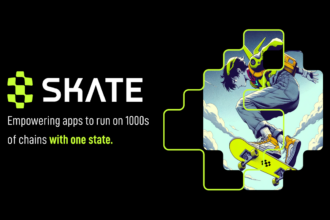The rise and impact of influencers has been one of the biggest forces in how the modern online social landscape has evolved in recent times. Now, a company that’s tapping into that influencer juggernaut, and specifically how it is playing out in the world of marketing, is announcing a huge round of funding to keep riding that wave.
Mavrck, which has built a platform for brands and media companies to source and engage with influencers for marketing campaigns, has raised $120 million in growth equity from a single backer, Summit Partners. Mavrck will use the capital to continue investing in its platform, and for business development. It is not disclosing valuation.
“We are going to use this investment to double down on our industry leading platform and double our team,” Lyle Stevens, the co-founder and CEO, said in an interview over email. “In doing so, we will become the most intelligent platform in the market with the petabytes of historical data we have… This data will power recommendation engines in the Mavrck platform that help connect enterprise marketers with the right creators, the right way, at the right cost.”
The company today already has some strong traction and momentum.
Stevens said that the company’s “Influencer Index” — as its directory is called — currently lists “millions of contactable macro- and micro- influencers around the globe and across all major social platforms.” Some 500 brands and 5,000 marketers are already using Mavrck to connect with those influencers. And in all, since being founded 2014, Mavrck has connected brands with more than 3 million influencers and creators, reaching more than 240 million consumers, primarily through “native” sponsored content across various media including videos and photos, blogs and podcasts.
Stevens said that the core of Mavrck’s technology is based around patented algorithms and first-party opt-in data, which brands use to find and connect with influencers that speak to the audiences that the marketers are hoping to reach. It has build some 25 different search filters — covering areas like audience demographics, historical performance, fraud risk — to whittle down the wider directory to those that match what they need. It then provides a platform for them to engage with each other to work through projects and eventually pay them. “We also have the technology for our customers to invite or import their existing influencer and consumer relationships to develop their own ambassador network,” he added.
Influencer marketing spend has become a very big business in the wider area of marketing, rising 55% in the last year, with two-thirds of brands now deploying an influencer marketing strategy in some way. It’s now estimated to be a $100 billion industry.
Alongside this, Stevens notes that the creator economy is “expanding rapidly, as more and more people have turned to content creation as a secondary or primary source of income.” He cites figures from eMarketer that estimated that in 2020, 50 million people identified themselves as “creators”. And if you have a child, you might nod a little wearily in recognition at the results of a Harris Poll last year that found some 30% of children said their ambition was to become a “YouTuber” (only 11% said “astronaut”).
“We want to support this new creative class by connecting them to the world’s enterprise consumer brands, allowing them to turn their passion into a possibility to earn a living,” said Stevens.
The role of a company like Mavrck is not just to connect marketers with influencers, but also to take a pulse on where influencer content is making the greatest impact. Although it’s a very fragmented space — blogs, for example, can still power, especially with certain kinds of products and consumers — when it comes to single platforms with the biggest scale, social apps are still at the top of the heap.
Stevens notes that Instagram remains the most popular platform today for influencer content, helped by the social app’s shift in 2016 to displaying content algorithmically instead of chronologically. But while Instagram still dominates, that is starting to shift. “The Tiktok ‘For You’ Page algorithm appears to be taking market share from Instagram, as we have seen a 400% increase year over year in the number of creators being activated on TikTok by our brand customers,” he said. “If that trend continues, we anticipate TikTok to dominate influencer marketing over the next five years.”
Whichever platform ends up on top, Stevens believes that influencers and influencer marketing are not a flash in the pan, but are here to stay.
“If you think about the last purchase you made, odds are you were influenced or persuaded by what other people say and display online, versus what a brand said to you directly,” he said. “Those other people can be friends, like-minded strangers or creators you choose to follow online. This concept of social proof has become an essential brand building tool for consumer enterprises. In the wake of COVID and the corresponding changes in consumer buying behavior, consumer engagement with creators has increased 70%. As a result, brands are investing more in social proof to not only thrive, but stay relevant and survive.”
That’s enough to influence investors, too.
“At Summit, we have invested across the commerce segment – in both brands and the technologies that support their growth – and we believe strongly in the impact and potential of authentic brand relationships as a means to build value,” said Michael Medici, MD at Summit Partners, in a statement.
“Brands are increasingly seeking to harness the power of the very long tail of content creators to help drive brand awareness and influence purchase activity,” added Sophia Popova, principal at Summit Partners. “Mavrck’s platform is purpose-built to support brands in these efforts. We are delighted to partner with Lyle and the Mavrck team for this next phase of growth.” Both of them have joined the board with this round.











![[infographic]-digital-experience-–-the-differentiator-for-any-online-business](https://www.marketinginasia.com/wp-content/uploads/2022/06/24849-infographic-digital-experience-the-differentiator-for-any-online-business-150x150.png)




